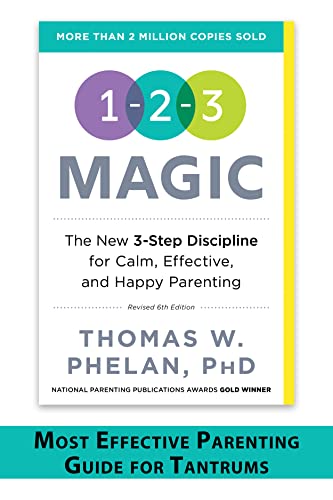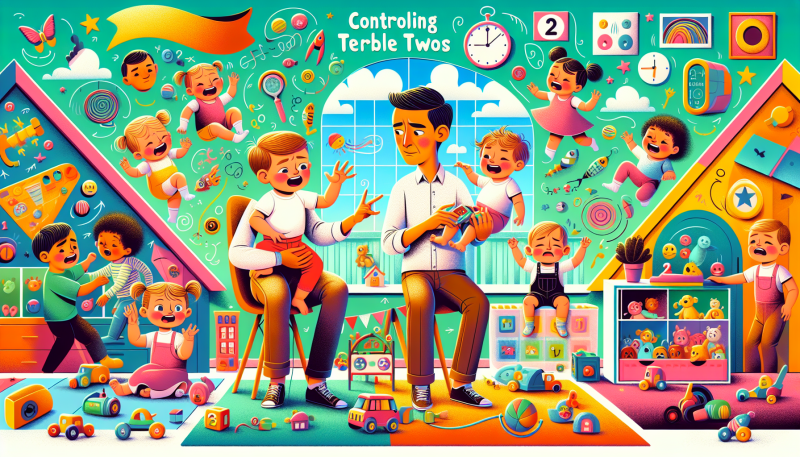Understanding the Causes of Toddler Temper Tantrums
Toddler temper tantrums are a regular part of your child's development, but they can be challenging to handle. Understanding the causes behind these outbursts is important to manage and prevent them effectively. Here are some common triggers that may lead to toddler temper tantrums:
1. Frustration and Communication Difficulties
Toddlers often lack the vocabulary and language skills to adequately express their wants and needs. This frustration can manifest as a temper tantrum when they cannot communicate effectively. For example, if they cannot convey their desire for a specific toy, they may scream, cry, and throw a tantrum.
2. Overstimulation and Fatigue
Toddlers have limited coping skills, and when they are bombarded with too much sensory input, such as noise, bright lights, or crowded environments, they may become overwhelmed. Additionally, being tired or missing a nap can increase a toddler's irritability, making them more prone to tantrums.

3. Seeking Independence
Toddlers are discovering their independence, but they still require limits and guidance from adults. When they face restrictions or cannot do things on their own, they may express their frustration through tantrums. It is part of their natural development to test boundaries and assert their autonomy.
4. Emotional Upheavals
During the toddler years, children experience a wide range of emotions but have not yet developed the skills to regulate them effectively. Changes in routine, transitions, or challenging situations may trigger tantrums as toddlers struggle to process and cope with their emotions.
5. Attention-Seeking Behavior
Toddlers crave attention, and they will use any means necessary to obtain it. If they notice that tantrums lead to their parents' undivided attention, they may resort to this behavior as a way to get what they want. Providing positive attention and affection in non-tantrum situations is important to discourage this behavior.
Understanding these causes can help parents and caregivers develop effective strategies to prevent and cope with toddler temper tantrums. By addressing the underlying triggers and meeting their needs, parents can help their children navigate this challenging phase of development more smoothly.
Remember, every child is different, and what works for one may not work for another. Patience, consistency, and empathy are key when dealing with toddler tantrums. By creating a loving and nurturing environment, you can support your child's emotional well-being and help them learn healthier ways to express themselves.
Effective Strategies for Preventing Toddler Temper Tantrums
Dealing with a toddler's temper tantrums can be challenging for parents, but the good news is that there are effective strategies to prevent these outbursts before they even happen. By understanding the triggers and implementing preventive measures, you can help your toddler navigate their emotions in a healthier way. Here are some proven strategies to consider:
1. Establish a Consistent Routine
Toddlers thrive on routine, as it provides them with a sense of stability and predictability. Make sure to establish a consistent daily routine that includes regular times for meals, naps, playtime, and bedtime. This will help your toddler feel more secure, reducing the likelihood of tantrums caused by tiredness or hunger.
2. Communicate with your Toddler
Toddlers often have difficulty expressing their needs and frustrations. Encouraging open communication will allow them to feel heard and understood, which can prevent potential meltdowns. Encourage your toddler to use words or simple phrases to express their wants, and be patient when deciphering their emotions. Additionally, teach them basic problem-solving skills to help them tackle minor issues independently.
3. Offer Choices and Limited Control
Giving your toddler limited control over their choices can promote independence and reduce power struggles. Offer them options within boundaries to satisfy their desires while maintaining control over the outcome. For example, allow them to choose between two appropriate outfits or snacks, giving them a sense of autonomy while avoiding situations that could trigger frustration.
4. Anticipate and Manage Triggers
Pay close attention to your toddler's behavior and try to identify common triggers that lead to tantrums. It could be hunger, fatigue, sensory overload, or transitions. Once you identify the triggers, plan accordingly. Have snacks readily available during outings, ensure they get enough rest, create calm environments during sensory-sensitive moments, and provide warnings or transitional cues before transitions occur.
5. Use Distractions and Positive Reinforcement
When you notice your toddler becoming overwhelmed or frustrated, redirect their attention to something positive or engaging. Offering a favorite toy, starting a fun activity, or suggesting a change of scenery can help shift their focus and diffuse the situation. Additionally, rewarding good behavior with praise and encouragement reinforces positive actions, making tantrums less likely.
6. Lead by Example
Remember that your toddler is constantly observing and learning from your actions. Demonstrating calmness, patience, and effective problem-solving skills can have a profound impact on their behavior. When faced with challenging situations, show them healthy ways to cope and manage emotions. This will encourage them to follow your example and respond more positively to frustrating circumstances.
Managing and Dealing with Toddler Temper Tantrums: Tips for Parents and Caregivers
Temper tantrums are a common behavior in toddlers and can be both exhausting and frustrating for parents and caregivers. These outbursts are typically a result of a toddler's limited communication skills and inability to express their needs and emotions effectively. However, with patience and the right strategies, you can manage and even prevent temper tantrums. Here are some useful tips:
1. Stay calm and composed
It is essential to remain calm when your toddler is having a tantrum. Remember that they are still learning how to navigate their emotions, and your reaction can significantly impact their behavior. Take deep breaths, and try not to get caught up in their frustration.
2. Identify triggers
Pay attention to the circumstances and situations that often trigger tantrums in your toddler. This could be hunger, fatigue, being overwhelmed, or transitions. By identifying these triggers, you can try to avoid them or proactively address them before a tantrum occurs.
3. Establish routines
Toddlers thrive on routines and predictability. Having a structured schedule for meals, naps, playtime, and other activities can help them feel secure and prevent tantrums caused by disruptions or surprises. Make sure to communicate and prepare them for upcoming changes in the routine.
4. Use distraction techniques
When you notice your toddler starting to get upset, redirect their attention to something else. Engage them in a different activity, offer a favorite toy, or start a fun game. Distraction can help shift their focus and diffuse the tantrum before it escalates.
5. Validate their feelings 
While it may seem counterintuitive, acknowledging your toddler's feelings during a tantrum can be helpful. Use simple and empathetic language to let them know you understand their frustration, even if you cannot give them what they want. This validation can calm their emotions and eventually lead to better self-regulation.
6. Set clear boundaries
Establishing clear rules and boundaries for your toddler's behavior is essential. Ensure that they understand your expectations and consequences for unacceptable actions. Consistency is key, as this helps your toddler develop a sense of predictability and learn appropriate ways to express themselves.
7. Offer choices within limits
Give your toddler a sense of control by offering them limited choices. For example, you can let them choose between two snacks or two outfits. This can provide a sense of autonomy and minimize power struggles that may lead to tantrums.
8. Teach alternative ways to communicate
Since tantrums are often a result of communication challenges, encourage your toddler to express their needs differently. Introduce simple sign language or teach them basic words or gestures they can use to convey their desires. This can empower them and reduce their frustration.
9. Stay consistent with consequences
When your toddler does have a temper tantrum, it is crucial to follow through with the consequences you have established. Whether it is a time-out or temporarily losing a privilege, consistency helps them understand the connection between their behavior and the outcome.
10. Take care of yourself
Dealing with tantrums can be exhausting and draining. Remember to prioritize self-care to maintain your own emotional well-being. Connect with other parents or caregivers for support and take breaks when needed. A calm and composed "you" will be better equipped to handle tantrums.
With patience, understanding, and consistent efforts, you can effectively manage and reduce the frequency of tantrums in your toddler. It is essential to remember that these outbursts are part of their development, and with the proper guidance, they will learn to regulate their emotions more healthily.
1-2-3 Magic: Gentle 3-Step Child & Toddler Discipline
Discover effective strategies for nurturing your toddler's development and fostering a loving bond without resorting to harsh discipline methods
Product information
$16.99 $7.78
Product Review Score
4.6 out of 5 stars
5533 reviews



